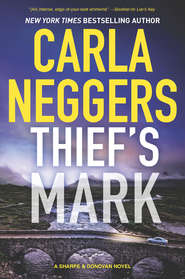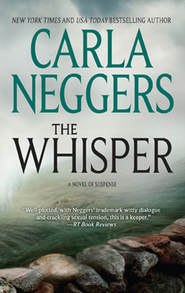По всем вопросам обращайтесь на: info@litportal.ru
(©) 2003-2024.
✖
Betrayals
Автор
Год написания книги
2018
Настройки чтения
Размер шрифта
Высота строк
Поля
She smiled for the first time in hours. “Not that old. Let’s just say people always know where they stand with you—and you’re a better man than most. Make yourself at home. I’ll be back in an hour or so.”
To her surprise and relief, Thomas let her go without another word.
Taking a gaggle of children flower-picking wasn’t something Annette relished, even on a good day, but they quickly busied themselves plucking every blossom in sight. Surrendering to their enthusiasm, she abandoned her halfhearted effort to separate weed from wildflower and plopped down in the straw grass. It was warm in the sun under the incomparable blue of the Mediterranean sky, and the scent of wildflowers, lemons and sea permeated the air, soothing her restlessness and feeling of inundation. Down through the small field and olive grove, she could see the red-tiled roof and simple lines of her stone mas, the eighteenth-century farmhouse where she’d spent a part of every year since she was a girl. It was as much home to her as Boston was. In many ways, more so, for it was here on the Riviera she could be alone, with just her son and his nanny—without Benjamin, without the pressures of being a Boston Winston and a well-bred woman whose idea of fulfillment was supposed to be making everyone’s life interesting but her own.
The children’s zeal for flower-picking waned faster than she’d hoped, but her nephew Jared, the eldest at nine, launched a game of tag. Quentin was reluctant and terrified, his mother suspected, the girls would beat him. He was seven, a sturdy, towheaded boy with a quiet manner and a head full of dreams and ideas whose execution defeated him. A game of tag was precisely the kind of open, raw confrontation he tried to avoid. He was his father’s son, Annette thought, with a lack of affection she was becoming used to. Even Quentin, however, couldn’t prevail against his cousin’s strong will.
The game got off to an aggressive start, and Annette nudged the flower basket closer to her. She didn’t want the children in their exuberance to knock it over. The flowers wouldn’t suffer; they were mostly rot. But she’d hate to have to explain why she’d tucked a .25-caliber automatic under the calico cloth lining the bottom of her flower basket.
“Bon matin, ma belle.”
She hadn’t heard his approach. She twisted around, but he was concealed behind the knotted trunk of an olive tree, out of the children’s view. Their game was already getting out of hand. Quang Tai’s six-year-old daughter, Tam, a mite of a girl, was beating the socks off the two boys and loving every minute of it, teasing them in her mixture of English, French and Vietnamese. Jared boasted he’d get her next game, but Quentin, ever the sore loser, accused her of cheating. Tam was having none of it. Jared remained neutral in the ensuing squabble, but then they both turned on him. Four-year-old Rebecca Blackburn amused herself by throwing grass on the three older children, becoming more and more daring until they finally paid attention to her.
“You can’t catch me,” she cried jubilantly as the two boys and Tam chased her.
Blue-eyed, chestnut-haired Blackburn though little Rebecca was, Annette had to admire the girl’s spunk. In another thirty years, she’d probably be as sanctimonious as her grandfather.
Mercifully, Tam’s father called from the edge of the field, and all four little monsters scrambled toward him. Annette promised she’d be along in a while and pulled her flower basket onto her lap. The gun had added weight to it.
“You can come out now, Jean-Paul,” she said.
He ambled out from behind the tree and squatted down, dropping a daisy into her basket. Annette tried to check the rush of raw desire she felt every time she saw him. It didn’t work. From their first encounter weeks ago, she had been obsessed with Jean-Paul Gerard. She could never get enough of him; he could never satisfy her, sexually or emotionally. Whenever they made love she wanted more of him. Even after multiple couplings in one night, she’d awaken aching for him. He could tell her a thousand times he loved her, and she would long to hear it again—and yet never believed him. Jean-Paul was twenty-four years old and one of the most popular men in France. She was a thirty-year-old married woman with stretch marks on her breasts and abdomen.
She hated to give him up.
She noticed the sun-whitened hairs on his tanned arms. He was so handsome, so arrogantly French. Leanly built, he was a dark, sleek, wiry man, his eyes a deep brown, soft and oddly vulnerable—and keen. They had to be. He was one of France’s premiere Grand Prix drivers, a risk-taking, desirable man who radiated a generous and unquenchable sexuality. He could have had virtually any woman he wanted. He had chosen Annette. She had never had any illusions that their affair would last, but she supposed she ought to derive some satisfaction at being the one to end it. He curled a loose tendril of hair behind her ear and brushed two fingers along the line of her jaw. “I missed you last night.”
“Jean-Paul…” For nothing at all she’d strip herself naked and make love to him right there in the grass under the olive tree. The children and her caretaker and Thomas Blackburn and her entire future be damned. She licked her lips, parched to the point of cracking, and squinted at her lover, sitting in the shade with the bright morning sun at his back. “Have you seen the papers?”
Nodding, he sighed and sat back in the grass.
“That’s why I called you.” Her voice quavered; she didn’t like that. She cleared her throat and forced herself not to look away. “Last night I became Le Chat’s latest victim. I was at the roulette wheel, wearing a Tiffany diamond-and-pearl bracelet—”
He looked pained. “Ma belle…”
“No, don’t. Let me finish. The bracelet was a gift to me from my husband on our fifth anniversary. There’s an inscription. The police…” Her throat was so dry and tight she felt she would choke. “I gave the police an exact description.”
Jean-Paul accepted her words without apparent surprise or concern. “What else did you tell the police?”
Annette hesitated, then said, “Enough.”
He looked away from her, his soft eyes lost in the shade.
“They’ve gone to your house, Jean-Paul. I would expect they’re there now and have already found my bracelet—”
“You used the key I gave you?”
“Yes. Last night, while you were asleep.”
He turned back to her, assessing her with the same alertness and intensity that had made him one of the finest race-car drivers in the world. This time, his craving for excitement and danger had led him astray.
“I don’t blame you,” Annette said, feeling stronger. “Please don’t blame me. We are what we are, Jean-Paul, and I’m only doing what I have to do. I have no desire to see you in prison, and I’m aware of the acute embarrassment testifying against you in court could cause me. I have a husband and a son I need to respect me—a life that I won’t allow Le Chat to destroy.”
“I should kill you,” he said calmly.
“Perhaps. But then you’d be a murderer as well as a jewel thief.” She dug beneath the flowers and pulled back the calico cloth, removing the gun and a leather pouch. The automatic she held in her right hand, awkwardly; the pouch she handed to Jean-Paul. “I decided to warn you because I don’t want you to be arrested and sent to jail. Here’s twenty thousand dollars. A generous amount under the circumstances and enough, I should think, to get you out of the country and settled elsewhere.”
He bit down on his lower lip, the only outward sign of the effect her words were having on him. “And if I choose not to go?”
“You can’t win, Jean-Paul. Remember who I am. I’m giving you a way out. Consider yourself lucky and take it.”
“What about the Jupiter Stones?”
She took no pleasure in how his voice cracked. In the last five minutes, she’d shattered his life. Better yours than mine, my love.
She said, “I don’t care about the Jupiter Stones. I only care now that you get out of the country before you’re arrested. Jean-Paul, I can’t have what we’ve been together come out. Don’t fight me. You’ll only do yourself worse damage.”
His eyes fastened on the gun, briefly, and Annette blanched at the thought he might actually force her to use it. But all at once he shot to his feet, and before she realized what was coming, he cuffed her hard on the side of the head. She sprawled backward against the tree, biting the inside of her mouth and crying out with pain as she tasted the warm saltiness of her own blood. Only by a miracle did she keep hold of the gun. If Jean-Paul reached for it, she’d kill him.
“Au revoir, ma belle.”
Annette shuddered at the hatred in his voice. But he walked away, quickly disappearing in the thickets, and she brushed herself off and staggered to her feet, fighting back tears. She began to run. Through the field, her flower and herb gardens, across the terrace, and into the quaint stone farmhouse where so long ago her nanny had taught her how to dry herbs and debone a fish. Thank God Thomas wasn’t around. She basked in the house’s familiarity, its welcome.
She made herself and the children tall glasses of iced, fresh-squeezed lemonade and put sugar cookies onto a plate—and, in a few minutes, she began to laugh.
Baroness Gisela Majlath was buried in a simple nonreligious ceremony attended by her closest friends and the tall Bostonian, Thomas Blackburn. As if his vaunted presence could change anything, Jean-Paul thought bitterly, as he hid among a stand of oaks. He stared at the plain white coffin and choked back his sobs lest anybody should hear him. He didn’t want to disturb the funeral. Had the police known their missing Le Chat would be there, they would have sent more than a single uninterested gendarme. And the Bostonian in his frayed, pinstriped suit? What would he have done?
The stiff breeze off the Mediterranean whipped tears from Jean-Paul’s eyes. Thomas Blackburn, he thought, would have done nothing.
Gisela had been a favorite on the Riviera. Her suicide forty-eight hours earlier had caught everyone by surprise and abruptly ended Le Chat’s welcome on her beloved Côte d’ Azur. For weeks, his presence had lent a spirit of romance and adventure to an otherwise ordinary season. With visions of Cary Grant in their heads, eager young heiresses, jet-setters and bored wives of American tycoons had ignored warnings not to wear their valuable, albeit heavily insured, jewels to crowded cafés, parties and casinos. In truth, they had vied to tempt Le Chat to commit one of his daring robberies, each longing for the excitement and attention of being his next victim. After all, he never hurt anyone.
Even Gisela had emerged from her brush with the Riviera jewel thief physically unscathed.
If it had ever occurred. Fact and fancy were often inseparable in Gisela’s quirky mind, an eccentricity that prompted more amusement than outrage among those who knew her. To be sure, her encounter with Le Chat—real or imagined—would never have happened if he hadn’t been stalking the Côte d’ Azur for victims.
Jean-Paul knew that the graveside mourners and the gossips and the snobs would blame Le Chat entirely for her suicide, without looking to themselves for culpability. He believed, however, that they, as much as their now-despised jewel thief, were responsible for her death.
No one had believed Gisela’s blithe assertion that she was a member of the displaced Hungarian aristocracy, never mind that she had possessed the fabled Jupiter Stones until they’d been stolen by Le Chat.
Engaging and vivacious, she had arrived on the Riviera in 1955—from whence no one could exactly say—and immediately made a name for herself with her irrepressible charm and her unique talent for decorating country cottages and farmhouses. She never called the people she helped clients, simply “friends.” Nor did she call herself an interior decorator or formalize what she did into anything as depressingly ordinary as a business. She did favors, that was all. Her “friends” always insisted on paying her, but how, she maintained, was up to them. Few ever caught her actually working. She loved to play and, especially, to take chances—with the roulette wheel, with her treks along the rocky coastline, with men. She had never made an enemy. Or, conversely, a true friend.
She had talked about the Jupiter Stones for years, but had never shown them to anyone—not that anyone had ever asked to see them. Why embarrass her? She couldn’t possibly own anything so valuable. The Jupiter Stones were her good luck charm, she liked to tell people. They were the source of her boundless energy and enthusiasm for life. She rubbed them over her body every night, she told friends and strangers alike, and the stones restored her spirit.
Who could believe such talk?
The Jupiter Stones had existed. They had been a gift from Franz Josef, emperor of Austria, king of Hungary, to his beautiful, haunted wife, Empress Elisabeth. The exacting monarch, who ruled the troubled Hapsburg empire for sixty-eight years until his death at eighty-six in 1916, had had his court jewelers search the world for ten exquisite corundum gems, not just the coveted cornflower-blue sapphire or pigeon’s-blood ruby, but in the other colors in which corundum was found: white, yellow, orange-yellow, green, pink, plum, pale blue and near-black. Each stone was perfectly cut, each given a name by Franz Josef himself. Four were named for the planets with a variety of corundum as their stone: the yellow sapphire was called the Star of Venus, the orange-yellow sapphire the Mercury Stone, the beautiful pigeon’s-blood ruby star-stone the Red Moon of Mars and the velvety cornflower Kashmir sapphire the Star of Jupiter. Individually the ruby and the cornflower-blue sapphire—each flawless, each cut into a perfect six-sided star—were the most valuable. But as a whole, the unique collection was worth a fortune.
In tribute to his wife’s unusually simple tastes, Franz Josef left the remarkable stones unmounted. He presented them to her in a ruby-red velvet bag embossed with the imperial seal. Elisabeth, it was said, took them with her everywhere. She was an incurable wanderer, and it was on one of these wanderings that she seemed to have “misplaced” the Jupiter Stones. Unlike her husband—and cousin—Franz Josef, Elisabeth, “Sisi” as she was known affectionately, wasn’t an orderly person. A lover of riding and endless walks, she was generous and careless with her possessions; she could have lost the unique gems or simply given them away—as she did so often with her things—on a whim. She never said. Whatever their fate, the fabled stones weren’t discovered among her countless jewels after her assassination in 1898, when, while boarding a steamer in Geneva, she was stabbed to death by an Italian anarchist who wanted to kill someone important enough that his name would get into the papers. He succeeded.











